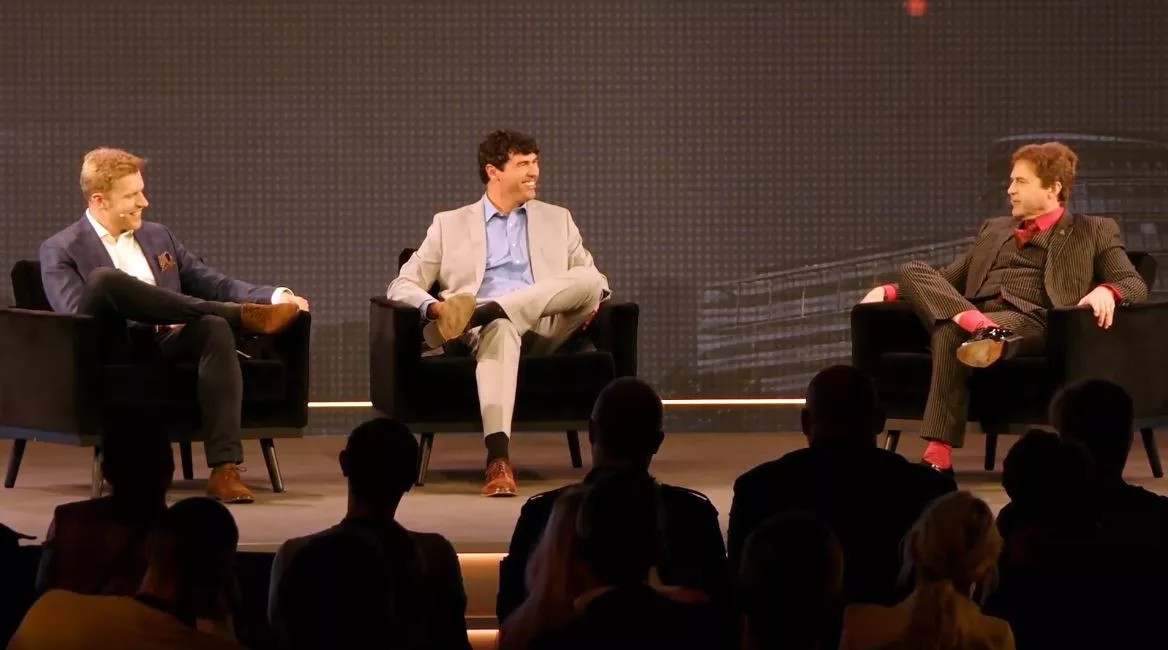
|
Getting your Trinity Audio player ready... |
In the first technical panel of the London Blockchain Conference, Connor Murray and Marcin Zarakowski hosted a fireside chat with Dr. Craig Wright. They covered how Bitcoin is a unilateral contract, what that means, and the specific obligations of certain parties within the ecosystem under the terms of that contract.
Blockchain is not enough by itself
Dr. Wright begins by pointing out something that should be obvious but seems to be lost on many in the blockchain and digital currency industry; trade doesn’t just happen by itself, and blockchain isn’t the only thing required to make it work.
In the real world, deadlines have to be met, goods have to be transported, etc., and this requires contracts and the law. Blockchain can make things more efficient, providing time-stamped records and real-time audit capability, but it has to work within existing frameworks that govern global trade today.

Before releasing Bitcoin, Dr. Wright did advanced degrees in computer science and law to understand how Bitcoin should work legally. He says that all digital cash systems before Bitcoin failed because they tried to be anonymous and didn’t consider the law. Traceability is what makes Bitcoin different from these previous attempts.
Bitcoin is a unilateral contract
Moving into the main topic of the fireside chat, Dr. Wright explains that Bitcoin is a unilateral contract, which means it’s an offer made to the world. Therefore, the protocol must be stable to allow people to build applications that still work decades from now, and the terms outlined in the Bitcoin white paper, as well as some of the comments made by Dr. Wright as Satoshi Nakamoto, are legally binding.
Even small protocol tweaks can mess things up in unintended ways. Dr. Wright explains how, when working with his teams at Hotwire and DeMorgan to try to scale Bitcoin, the constant tweaks made by BTC Core developers constantly set things back and made them go back to the drawing board. This underscores why it’s so important for the protocol to be set in stone, as Satoshi said. He points out that the internet survived for this reason; the protocol was set in such a way that apps designed in the ‘90s would still work today.
As well as the unilateral contract, Dr. Wright explains there are many other contracts and parties involved in Bitcoin. Users, developers, and other actors in the ecosystem are bound to behave honestly according to the terms set out in the white paper.

What are the Bitcoin Association’s specific obligations? To ensure that Bitcoin scales and is stable. In short, it has to ensure that someone’s Bitcoin application still works 10 years from now and that they will never lose the investment they put into building it because of protocol changes.
On Bitcoin nodes
Speaking about Bitcoin nodes, Dr. Wright explains that they are clearly defined in section five of the Bitcoin white paper. They create and distribute blocks. He reminds us that Bitcoin is a small world network, and all nodes are connected. They’re paid to validate, order, and broadcast transactions and are bound legally to behave honestly.
Tying in nodes with his grander vision for Bitcoin, Dr. Wright highlights how pointless the ‘raspberry pi’ so-called nodes on networks like BTC are. It is his vision that Bitcoin scales to as many as a trillion transactions per block with terabytes of data in each. This isn’t easy, and simply increasing the block size is not enough. After years of work by nChain, the Bitcoin Association, and others, we are finally approaching the point where Bitcoin will finally scale to these levels.
On decentralization
There is perhaps no term in Bitcoin and the blockchain industry that is more widely misunderstood than decentralization. In the final section of this fireside chat, Dr. Wright explains that it has nothing to do with running a node at home. In fact, Satoshi Nakamoto explicitly expressed that this won’t be the way things are at scale.
Bitcoin is a resilient, decentralized network because multiple nodes make it more secure. He points out that single servers can not scale to the levels Bitcoin can, and they’re nowhere near as secure as multiple nodes would be, either. In his view, Bitcoin will be able to run 1,000 Twitter simultaneously, thanks to its distributed nature.
As of right now, no blockchain is truly decentralized, he says. There’s always a small group that is in control, such as BTC Core or the Ethereum Foundation.
Watch: Create the future with blockchain

 11-22-2024
11-22-2024


